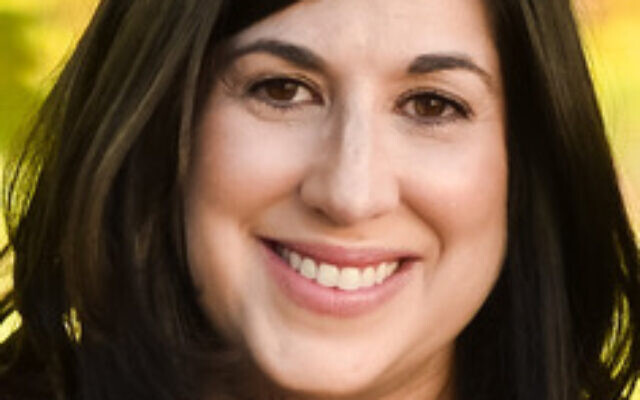We Must All Be Agents of Change
Dina Fuchs-Beresin shares thoughts about connecting as a community during a crisis.
How do you maintain a sense of community in an atmosphere of isolation and separation?
A few months ago, none of us were familiar with the term “social distancing.”
Now, as we ready to mark our collective journey from slavery to freedom this Passover, I can’t help but ponder the irony that Jews all over the world are celebrating this milestone, while not actually enjoying the freedoms we so recently took for granted. The idea of struggle, while certainly a recurring theme in Jewish history, was – until just weeks ago – a foreign concept to many of us. Now, more than ever, we must remember that even as the Jewish people suffered and wandered in the desert, we did so as a community. And that notion of strength in numbers is central to our identity both then and now. In times of struggle, we always have one another – our community – to lean on. This was true thousands of years ago during the Exodus, and it is true today.
Nine months ago, Jewish Women’s Fund of Atlanta launched the ACT (Agents of Change Training) program, designed to build community, foster leadership skills and personal growth among women in our Jewish community, and create meaningful relationships with those interested in becoming advocates for a variety of causes. We were delighted when applications streamed in for our first year at nearly double the expected capacity. After face-to-face interviews with each applicant and many tough conversations with our trustees, we chose 20 women, ranging in age from 34 to 63, as part of this first cohort.
Our roster ran the gamut of experience, from women who were already intimately familiar with our Jewish community having organized Atlanta’s recent Maccabi Games, and others who worked on staff at major Jewish organizations, to women only tangentially involved in the community who were interested in figuring out where they might be more inspired to make a difference. All were striving to gain specific insight into how they might “plug in” and become catalysts for change. Most, but not all, were moms, some still raising small children, while others were already empty nesters. It was as wide a variety of experiences as we’d hoped to convene, and we were overjoyed with the positive response.
Until recently, the group met in person each month for training sessions, with various other get-togethers, both social and educational, scheduled in the interim. We explored topics such as personal and family philanthropy, sexual harassment and the #MeToo movement, identifying and living your values, the gift of having a mentor and the art of communication and networking.
Following each session, a participant wrote a blog post to recap what they’d learned. Reflecting back on those recently, I was struck by how pertinent their takeaways were. Though we had no way of knowing it then, many of the lessons we’ve touched on throughout the program now take on new and more significant meaning in this time of amplified stress and uncertainty. The collective wisdom of these remarkable women speaks to the reinvigorated value they place on themselves as individuals, as members of a vibrant Jewish community, and as stewards of hope for the future.
Be brave, don’t be perfect.
We are validators of the worth of one another.
Be real. Be vulnerable.
The conversation challenged me to honestly think about my family’s charitable giving and how we give. Do we give because we’re obligated to, or do we give with real passion and purpose?
Now I am not only looking to the future for myself, I am looking at it for my daughter.
Step by step we can create change. We teach our daughters that they can do and be what they want. Now we have to teach them how to be heard.
By assuming that we are all in growth mindsets, we both challenge one another and give one another confidence to be who we will be (ehiyeh asher ehiyeh).
Think of advocacy like a muscle. To strengthen, it requires repetition and regular work.
There is no question that our global community will be forever changed as we emerge from this health crisis. It’s an experience we’ve all shared that will likely transform us mentally, physically and emotionally. In the aftermath, it will be incumbent upon all of us to become Agents of Change, caring for ourselves and one another with compassion, nurturing our own resilience and continuing our commitment to work together for the common good.
Our final ACT sessions may have us convening via Zoom rather than in person, but the actual connections we’ve built extend well beyond Wi-Fi. Despite the unique circumstances, the first year of our program is exactly what we’d dreamed it would be: An inspired and energized group of women who now have the tools to make a difference in our community, at a time when it’s more vital than ever.
Dina Fuchs-Beresin is the program manager of Jewish Women’s Fund of Atlanta.




comments